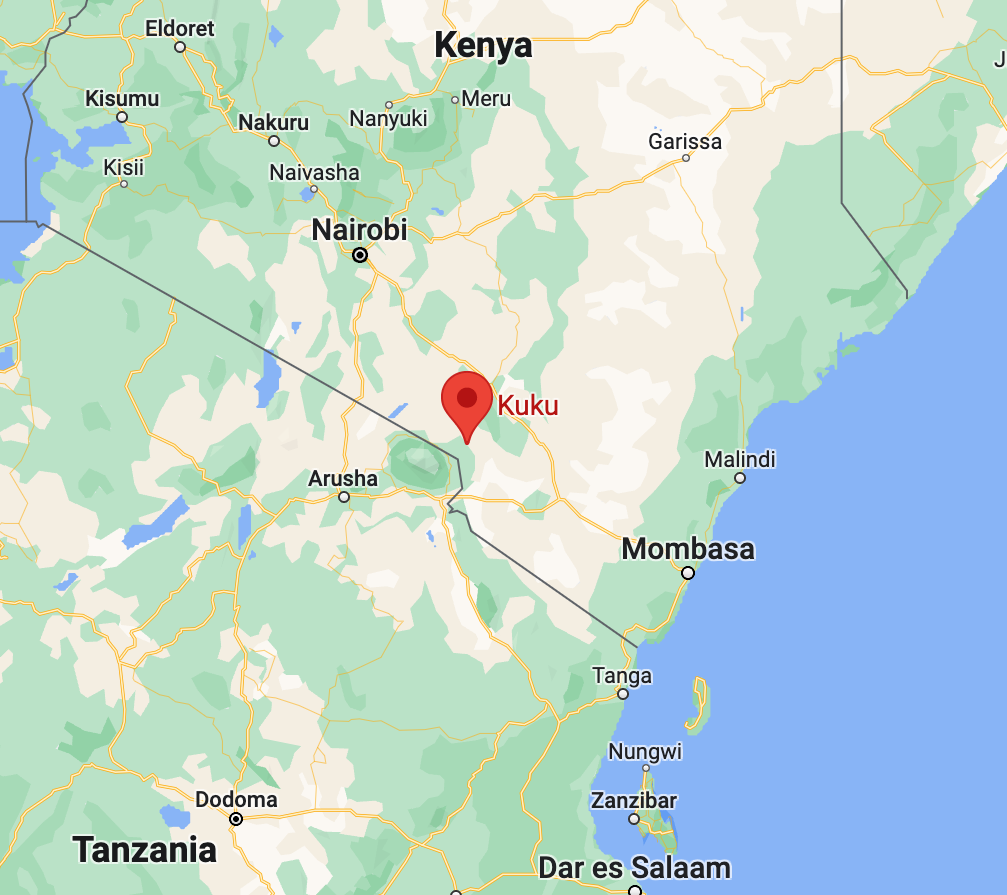Loss of biodiversity
The Kuku Group Ranch is a savannah landscape and critical wildlife corridor between the Amboseli and Tsavo National Parks. It is home to over 29.000 Maasai people. The Kuku ranch’s population has been growing exponentially, despite the decreasing landscape quality. Climate change has caused unpredictable rainfall, with certain parts of the region only receiving 400 mm of rainfall annually. These factors have led to rapid erosion and degradation of pasturelands.
As a result of this degradation, agricultural and livestock productivity have plummeted. Historic overgrazing of the land and climate change are dramatically decreasing the landscape’s productivity and biodiversity. As a result, many of the Maasai are facing water and food scarcity and increased poverty.

The Kuku Group Ranch

Kuku, Kajiado County, Kenya
The Kuku Group Ranch is undertaking a project alongside Justdiggit to regenerate the land and protect the livelihoods of the Maasai community. A number of different interventions are being implemented that will improve soil health as well as water retention and prevent erosion. Grazing Management (Olopololi), Stone Lines, and, most importantly, Water Bund interventions (including Semi-Circular Bunds) are being practised to retain rainwater. These methods allow water to seep into the soil rather than being washed away.
Grass Seed Banks are also being constructed on the ranch. As part of the East African Hydrological Corridor, a total of 150.000 semi-circular bunds and five grass seed banks are being dug. This will contribute to the regreening of 1077 ha of degraded land and the restoration of vegetation across the Kuku Group Ranch.
Not only will this project restore the landscape, it also provides employment to local communities while it is ongoing. Many Maasai are involved in the creation and management of bunds, stone lines and grass seed banks. The income from this labour has allowed Maasai families to send their children to school. Additionally, the grass seed banks are currently managed by ninety Maasai women. These women are responsible for growing, harvesting, and selling the grass and hay seeds of these banks, which provides supplemental profits for the community.
The grasses create a green oasis on degraded pasturelands, and a surplus of hay can be used as fodder for livestock in dry seasons. Furthermore, community rangers have been hired to guard restored areas and the surrounding lands. All of this has led to great benefits for the local community.
Videos